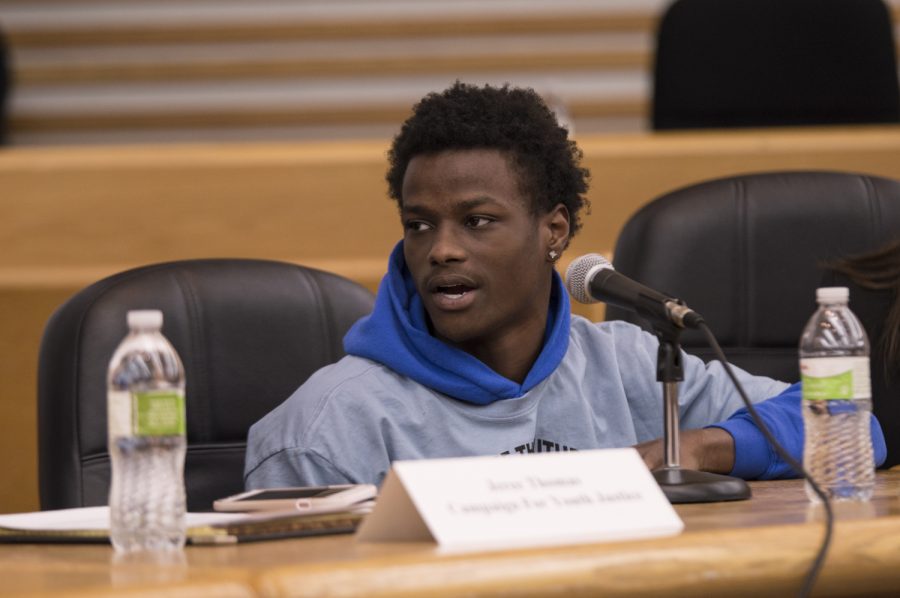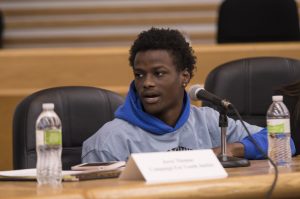UI panel discusses reforming juvenile justice in Iowa
A panel Nov. 1 at the UI College of Law discussed the issue of injustice in the juvenile-court system both nationally and in Iowa.
Danish Robertson speaks during an event at the College of Law. Members of the community gathered to advocate against teenagers being held in adult prisons on Thursday, Nov. 1, 2018.
November 2, 2018
Alone in a cell for months, unable to walk from place to place without handcuffs and escorts, barren recreation rooms devoid of activities beyond walking in circles for long lengths of time.
This was the reality of now 19-year-old Dannish Robertson, just one of the juveniles held in adult correction facililties in Iowa.
Robertson spent two-and-a-half months alone in the Benton County Jail in Vinton, Iowa, because there were no facilities to hold youth in Johnson County, where he was charged with attempted murder and first-degree robbery in 2016 when he was just 16.
Today, Robertson attends Kirkwood Community in College with an interest in business management.
The issue of prosecuting, sentencing, and incarcerating youth under the age of 18 in the adult criminal-justice system, which occurs both nationally and in Iowa, was the focus of discussion during a panel regarding juvenile justice held at the University of Iowa College of Law on Nov. 1.
The panel, comprising advocates of the Campaign for Youth Justice, based in Washington, and UI graduates, discussed with Iowa law students and the public the issue of juveniles being sent into the adult system before they reach the age of 18.
The Campaign for Youth is a national initiative focused entirely on ending the practice by reforming juvenile justice, according to the campaign.
“Youth held in adult prisons [are] less likely to have access to free phone calls, education, equal treatment, and connection to their families,” said LaTasha DeLoach, a panelist and graduate of UI School of Social Work.
According to Iowa statute, teens can be waived to adult court at age 16 or 17 if they have committed felonies that are excluded from juvenile court.
A juvenile is eligible for waiver for any public offense at age 14, except for animal torture that occurs under age 17.
The decision to place Robertson and other juveniles in adult prison is up to the county sheriff. DeLoach said this is an elected position dependent on voters.
“All 99 counties need an elected sheriff,” she said. “Sheriff’s Offices and departments choose to place juveniles in an adult facility when [juveniles] are charged as an adult,” DeLoach said.
Jeree Thomas, a panelist and the policy director at the Campaign for Youth Justice, said voting for candidates who understand this issue is the biggest step the public can make towards improving youth justice around the country.






